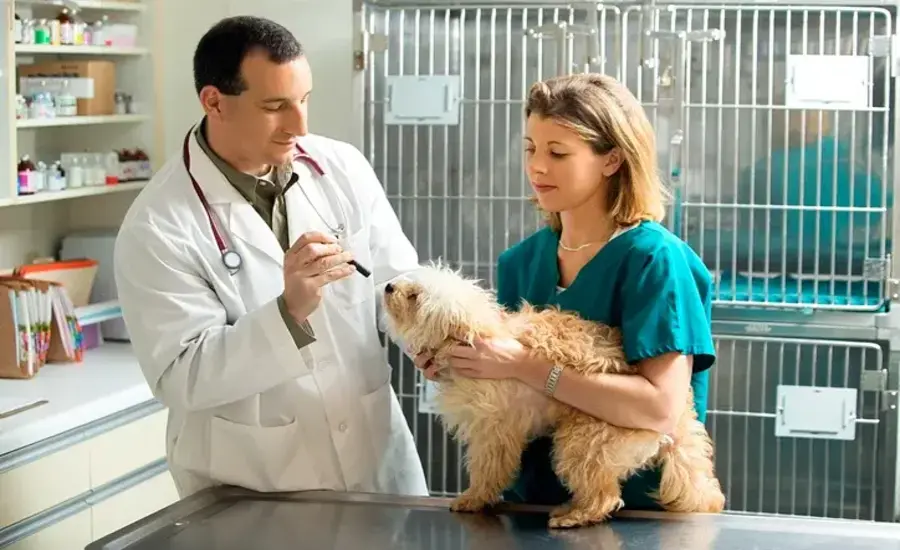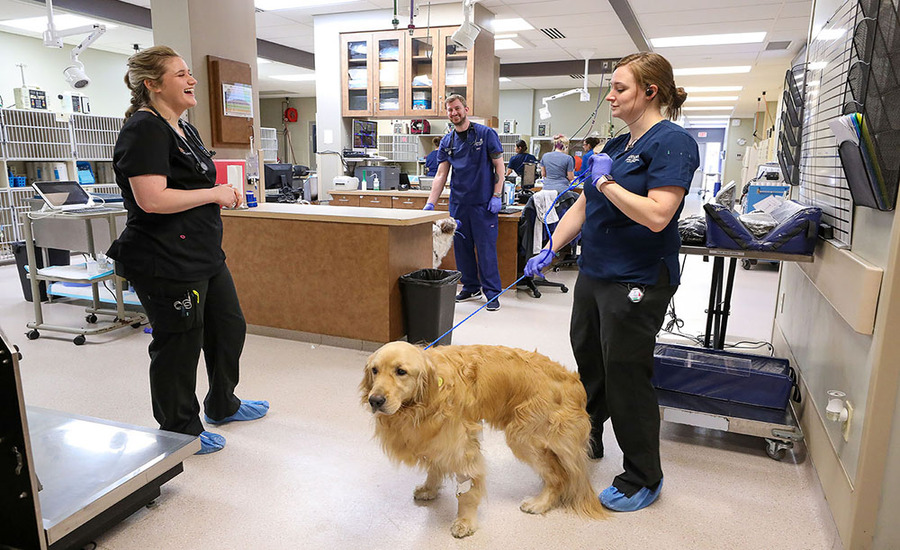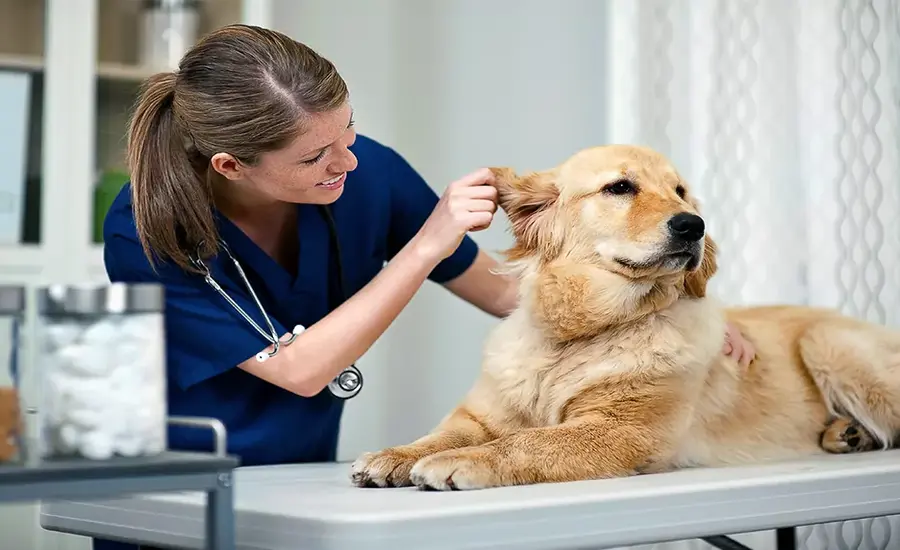How to Become a Vet Tech: A Comprehensive Guide to a Rewarding Career
Veterinary technicians, often referred to as vet techs, play a crucial role in the world of animal healthcare. They work alongside veterinarians to ensure that animals receive the best possible care, from routine check-ups to emergency treatments. Becoming a vet tech is a rewarding career choice for individuals who are passionate about animals and want to contribute to their health and well-being. In this article, we will explore in detail how to become a vet tech, including the educational requirements, certifications, job responsibilities, career outlook, and more. By the end of this guide, you will have a clear understanding of the steps necessary to embark on this fulfilling career.
Understanding the Role of a Vet Tech
The role of a veterinary technician is multifaceted and involves a wide range of responsibilities. Vet techs assist veterinarians in diagnosing and treating animals, perform medical tests, prepare animals for surgery, administer medications, and provide post-operative care. They are also responsible for recording medical histories, collecting laboratory samples, and communicating with pet owners about their animals’ health and treatment options.
Daily Responsibilities of a Vet Tech
Vet techs perform a variety of tasks on a daily basis, including:
- Administering Medications: Vet techs are responsible for ensuring that animals receive their medications as prescribed by the veterinarian. This may involve administering oral medications, injections, or topical treatments.
- Performing Diagnostic Tests: Vet techs often perform diagnostic tests such as blood work, urinalysis, and fecal exams to help veterinarians diagnose medical conditions.
- Assisting in Surgeries: During surgeries, vet techs assist veterinarians by preparing the surgical area, sterilizing equipment, monitoring the animal’s vital signs, and ensuring that the animal remains stable throughout the procedure.
- Providing Post-Operative Care: After surgery, vet techs monitor the animal’s recovery, ensuring that they are comfortable and that their healing process is progressing smoothly.
- Educating Pet Owners: Vet techs often play an important role in educating pet owners about proper animal care, diet, exercise, and medication administration. They help ensure that pet owners understand how to care for their animals at home and prevent future health issues.
The wide range of responsibilities requires vet techs to be skilled in various areas of animal healthcare, possess strong communication skills, and remain compassionate and patient when dealing with both animals and their owners.

Educational Pathways to Becoming a Vet Tech
To become a veterinary technician, individuals must complete specific educational requirements. The journey typically involves earning an associate degree from an accredited veterinary technology program, followed by obtaining certification or licensure in the state where they wish to work. Below is a detailed look at the educational steps necessary to become a vet tech.
Step 1: Earn a High School Diploma or Equivalent
The first step in becoming a vet tech is to earn a high school diploma or GED. While in high school, students interested in this career should focus on courses in biology, chemistry, and mathematics, as these subjects provide a solid foundation for veterinary studies. Additionally, volunteering at animal shelters, veterinary clinics, or zoos can provide valuable hands-on experience and insights into the field of animal care.
Step 2: Enroll in an Accredited Veterinary Technology Program
After completing high school, aspiring vet techs must enroll in an accredited veterinary technology program. These programs are typically offered at community colleges, technical schools, and some universities, and they lead to an Associate of Applied Science (AAS) degree in Veterinary Technology.
Accreditation is an important factor to consider when choosing a veterinary technology program. The American Veterinary Medical Association (AVMA) accredits vet tech programs, ensuring that they meet industry standards for education and training. Graduating from an AVMA-accredited program is often a requirement for becoming licensed or certified as a vet tech.
Step 3: Complete Hands-On Clinical Training
In addition to classroom instruction, veterinary technology programs include hands-on clinical training. This training, often referred to as clinical externships or practicums, provides students with the opportunity to work in real veterinary settings under the supervision of licensed veterinarians and experienced vet techs. Clinical training allows students to apply the knowledge and skills they have learned in the classroom to real-world situations, preparing them for the challenges they will face in their careers.
During clinical training, students may work in veterinary clinics, animal hospitals, zoos, or research facilities. They will assist with a variety of tasks, such as administering medications, performing diagnostic tests, assisting in surgeries, and providing post-operative care. Clinical training is an essential component of vet tech education, as it helps students develop the practical skills necessary for success in the field.
Step 4: Pass the Veterinary Technician National Examination (VTNE)
After completing a veterinary technology program, graduates must pass the Veterinary Technician National Examination (VTNE) to become licensed or certified in most states. The VTNE is a standardized exam administered by the American Association of Veterinary State Boards (AAVSB). It assesses a candidate’s knowledge and skills in areas such as anesthesia, surgical nursing, pharmacology, laboratory procedures, and animal care.
The VTNE consists of 170 multiple-choice questions and is typically offered three times per year. Passing the VTNE is a crucial step in becoming a licensed or certified vet tech, as it demonstrates that the candidate has met the minimum competency standards required to practice in the field.
Step 5: Obtain State Licensure or Certification
In most states, vet techs must obtain licensure or certification to practice legally. The requirements for licensure or certification vary by state, but they typically include graduating from an AVMA-accredited veterinary technology program and passing the VTNE. Some states may also require vet techs to pass a state-specific exam in addition to the VTNE.
Once licensed or certified, vet techs must maintain their credentials by completing continuing education (CE) courses. Continuing education helps vet techs stay current with the latest advancements in veterinary medicine and ensures that they remain competent in their field.
Specializations and Advanced Certifications for Vet Techs
While many vet techs work in general veterinary practices, some choose to specialize in specific areas of animal care. Specializing allows vet techs to focus on a particular field of interest, gain advanced knowledge and skills, and potentially increase their earning potential. Below are some of the most common specializations and advanced certifications available to vet techs.
Common Specializations for Vet Techs
- Emergency and Critical Care: Vet techs who specialize in emergency and critical care work in fast-paced environments, such as animal emergency rooms and intensive care units. They provide life-saving care to animals in critical condition, assist in emergency surgeries, and monitor animals during the recovery process.
- Anesthesia and Analgesia: Vet techs who specialize in anesthesia and analgesia are responsible for administering anesthesia to animals before surgery and monitoring their vital signs during procedures. They also play a key role in managing pain for animals recovering from surgery or dealing with chronic conditions.
- Dentistry: Veterinary dental technicians focus on the oral health of animals. They assist veterinarians with dental cleanings, extractions, and other oral surgeries. They may also educate pet owners on proper dental care for their animals.
- Behavior: Veterinary behavior technicians work with animals that have behavioral issues, such as aggression, anxiety, or fear. They assist veterinarians in diagnosing and treating these issues and may work closely with pet owners to implement behavior modification plans.
Obtaining Advanced Certifications
Vet techs who wish to specialize in a particular area can pursue advanced certifications through professional organizations. For example, the National Association of Veterinary Technicians in America (NAVTA) offers specialty certifications in areas such as emergency and critical care, anesthesia and analgesia, dentistry, behavior, and more. To earn these certifications, vet techs must meet specific education and experience requirements and pass a certification exam.
Obtaining advanced certifications can enhance a vet tech’s career prospects and earning potential. It also allows them to take on more specialized roles within veterinary practices and contribute to the advancement of veterinary medicine.
Career Outlook for Vet Techs
The demand for veterinary technicians is expected to grow significantly in the coming years. According to the U.S. Bureau of Labor Statistics (BLS), employment of veterinary technicians and technologists is projected to grow 15% from 2020 to 2030, much faster than the average for all occupations. This growth is driven by an increasing pet population, advances in veterinary medicine, and a growing awareness of the importance of animal healthcare.
Job Opportunities for Vet Techs
Vet techs can work in a variety of settings, including:
- Private Veterinary Clinics: The majority of vet techs work in private veterinary practices, where they assist veterinarians with routine check-ups, surgeries, and other medical procedures.
- Animal Hospitals: Vet techs who work in animal hospitals may provide emergency care, assist in surgeries, and care for animals recovering from illness or injury.
- Zoos and Aquariums: Vet techs who work in zoos and aquariums care for exotic animals and assist veterinarians with medical procedures, health assessments, and rehabilitation efforts.
- Research Facilities: Some vet techs work in research settings, where they care for animals used in scientific studies and assist researchers with medical procedures.
- Animal Shelters and Rescue Organizations: Vet techs who work in animal shelters and rescue organizations provide medical care to animals in need and assist in rehabilitation efforts.
Salary Expectations for Vet Techs
The salary of a veterinary technician can vary depending on factors such as location, experience, and specialization. According to the BLS, the median annual wage for veterinary technicians and technologists was $36,260 as of May 2020. However, vet techs with advanced certifications or those working in specialized fields, such as emergency and critical care or anesthesia, may earn higher salaries.

Challenges and Rewards of a Career as a Vet Tech
While working as a vet tech can be incredibly rewarding, it is not without its challenges. Vet techs often work long hours, including nights, weekends, and holidays. They may be required to lift heavy animals, work in stressful environments, and handle difficult situations, such as euthanizing terminally ill animals. Despite these challenges, many vet techs find the career to be fulfilling due to the positive impact they have on the lives of animals and their owners.
Emotional Rewards of Being a Vet Tech
One of the most rewarding aspects of being a vet tech is the opportunity to improve the health and well-being of animals. Vet techs often develop strong bonds with the animals they care for and experience a deep sense of satisfaction when they help an animal recover from illness or injury. Additionally, vet techs play a vital role in educating pet owners and promoting responsible pet care, which can have a lasting impact on the overall health of the animal population.
Conclusion: A Path to a Fulfilling Career
Becoming a vet tech is a journey that requires dedication, education, and a genuine passion for animal care. By completing the necessary educational requirements, obtaining certification or licensure, and gaining hands-on experience, individuals can embark on a rewarding career that allows them to make a positive difference in the lives of animals every day.
Whether working in a private veterinary clinic, animal hospital, or zoo, vet techs are essential members of the veterinary healthcare team. The demand for skilled vet techs continues to grow, offering a bright career outlook for those who choose to enter this field. For individuals who are passionate about animals and interested in pursuing a dynamic and fulfilling career, becoming a vet tech is an excellent choice.





